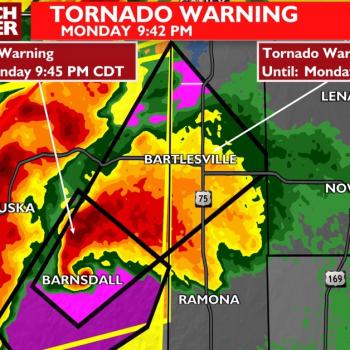
In the United States, so many on Thanksgiving will gather together with loved ones and others they can marginally tolerate to eat too much food offered in combinations we would likely not intentionally select any other time of year. There are regional nuances for sure; in certain areas in the south, black-eyed peas are required and sweet potatoes without marshmallows look naked, meanwhile in parts of New England it is a scandal if the vegetables lack maple glaze. Then again, some people just have pizza or tacos, hamburgers, barbecue, or fried chicken just because that’s what they like.
But regardless of how or with whom we are gathered, after everyone comes to the table but before our waistband is put to the test and a significant portion of attendees forget their middle names watching football while overdosed on tryptophan, one thing that seems to be a common practice at Thanksgiving (even among non-believers) is to somehow acknowledge what we are grateful for.
Public Displays of Affection
Typically, this exercise of giving thanks becomes a public way to comment on how others at the table have contributed to our well-being in some way, and unless someone really is the poor black sheep who can ne’er do well, usually just about everyone in attendance becomes some kind of blessing for someone else—or at least that’s what people say.
While some families just bury their feelings in moments of silence and awkward conversations about food, most of the time a great deal of sucking up takes place. But even if you find yourself alone nuking a Hungry-Man, or hard at work doing whatever it is your job or life otherwise entails, more than likely at some given moment during the day you will ask yourself what you have to be thankful for.

And there lies the problem: more than we realize, many individuals, regardless of whom they are with or what day it is, may have circumstances that are difficult to be grateful for, such as fear, abuse, hunger, homelessness, death of loved one, poor health, and the list goes on. On the other hand, there are those among us who have much to be thankful for—and by custom, we are only too happy to congratulate ourselves for our good fortune.
Now, we have every day of our lives to be grateful to God for how we are blessed, and though it could be true that we forsake gratitude more than we practice it, isn’t it just a tiny bit narcissistic to devote an entire day to focus our attention solely on how good our lives are?
I know what you are probably about to say—that if one is grateful to God for others, such thoughts couldn’t be selfish in any way. But I contend even those sentiments are selfish, because they are usually about what others mean to us, or how they improve our well-being.
The fact remains that Thanksgiving is a day when many of us contemplate and celebrate the tangible parts of our lives that we value the most, even when others are responsible for what we have.
And there are so many that have not.
Blessed Are the Poor in Spirit
I have a longtime friend living in another part of the country who was displaced from his home Tuesday along with his three children with special needs. Temperatures in the metropolitan area where they live are falling below freezing this week. He is an ordained minister and author, and has spent his entire life serving others and giving sacrificially. And their displacement was caused directly by church leadership who care more about the bottom line of their finances than if a family is homeless.
Unfortunately, the situation is not more complicated. While the church leaders responsible will be spending time with their families in warm homes eating pumpkin pie, a minister and his children literally will not have a roof over their heads.
By the way, if you would like to provide assistance in this situation, here is your chance:
How many people in your community have no food, or are homeless? How many have terrible circumstances they survive every day that we may not even be able to imagine or comprehend?
Others Above Ourselves
Does it really glorify God for us take a day to contemplate our own blessings and just push all the needs of other aside?
“Therefore if you have any encouragement from being united with Christ, if any comfort from his love, if any common sharing in the Spirit, if any tenderness and compassion, then make my joy complete by being like-minded, having the same love, being one in spirit and of one mind. Do nothing out of selfish ambition or vain conceit. Rather, in humility value others above yourselves, not looking to your own interests but each of you to the interests of the others.” (Philippians 2:1-4, NIV)

What would our world look like if we valued others above ourselves by doing something tangible to help those who need it?
You can extol the virtue of annual rituals like ignoring the Macy’s Thanksgiving Day Parade, stuffing our faces with food, and watching the Cowboys throw a ball, but it isn’t compassionate, and it isn’t Christlike.
Many of us certainly are blessed beyond what we can even know, and our proper response to the encouragement and comfort such blessings provide is to serve the interests of others with compassion and humility.
On Thanksgiving, will you show gratitude to God by serving yourself a second helping of green bean casserole, or by serving others?














